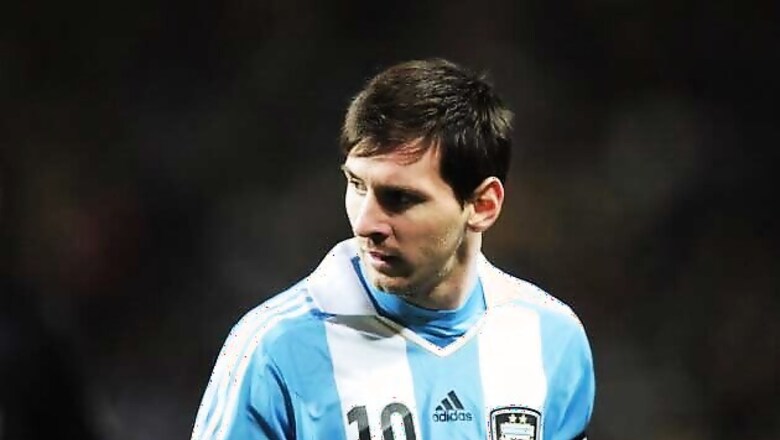
views
Lionel Messi is the figurehead of Brazil's arch-rivals Argentina, one of the teams with the potential to spoil the home team's dream of winning the World Cup next year.
Yet Brazilians love Messi and his presence will be good for the tournament, the chief executive officer of Brazil's Local Organising Committee (LOC) told Reuters.
"For us he is so important, he is unanimously admired in Brazil not only because of his football but also his behaviour," Ricardo Trade said in an interview on a visit to Buenos Aires.
"It is so important to have Messi there, (so) that a lot of people could see him. People love to touch him - like Neymar for Brazil he is very likeable to Brazilians."
Trade said he was confident the tournament would go off well after the experience that the country gained from hosting the Confederations Cup in June, when demonstrations by Brazilians caught the authorities off-guard.
"We're not God that we can say we won't have problems at the World Cup," he said. "We're having them now, last week in Rio and Sao Paulo there were very violent protests. We live in a democracy but vandalism and violence cannot be permitted, (protests) must be within the law.
"We're going to respect the rights of fans, referees, press. It wasn't easy (to handle) in the Confederations Cup because it was a surprise for everyone. No one expected the social conflicts not even Brazilians."
SECURITY ASPECTS
Trade said the LOC is not responsible for security outside the stadiums but helps with general planning. This includes how the authorities handle potential problems from hooligans or Argentine barrabravas (organised groups of supporters) crossing the border.
"Brazil's security forces are going to work in conjunction with the forces of each (participating) country," he said. He recalled special arrangements for the match in Pretoria at the 2010 finals when the United States faced Algeria.
"I think (the protests in June) was something spontaneous by the people, the social networks, from areas that aren't (FIFA's), demands by citizens who want better transport, more health care, greater security.
"There's room for improvement and the people want that ... but Brazil is changing a lot and for the good, the social distances are being shortened," Trade said.
"Many people think the Cup is diverting money from social services but it's not like that, there is a lot of investment in the World Cup."
Trade made a visit recently to Cuiaba, the capital of the vast, tropical Mato Grosso state and probably the least known of the 12 World Cup venues.
The state governor told him he had 55 public works taking place related to urban mobility to improve the city which had received no investment for 30 years.
"They are investments, not costs, we're going to improve our country with the World Cup in our country," Trade said.
The delays experienced when FIFA were handed some of the six stadiums for the Confederations Cup very close to the start of the tournament will not be repeated, he added.
"The big lesson is not to hand over a stadium late because everything gets delayed. You need time to test it and having that time makes a difference."
Trade cited the examples of the Mineirao in Belo Horizonte and the Castelao in Fortaleza that were able to stage several matches to work out how the stadiums worked best. "When we received them everything was ready, nothing was lacking."

















Comments
0 comment